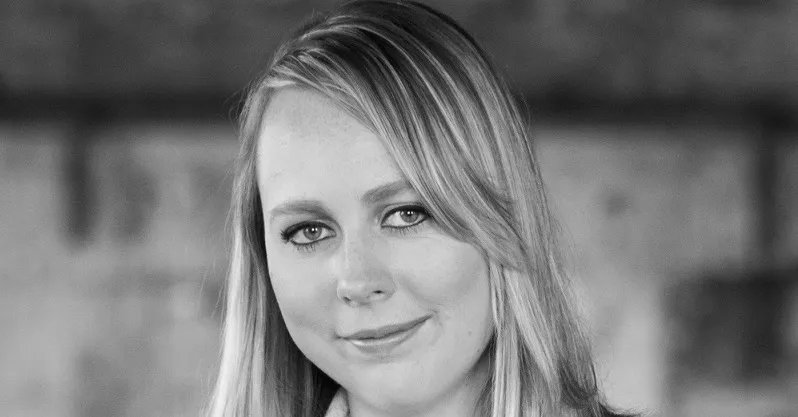How Women Grow is cultivating cannabis leaders in North America
Women Grow is the largest network for professionals in the legal marijuana industry in North America. It takes advantage of the still largely unexplored sector to encourage women success stories and create a narrative around large women participation in the industry. The idea came to light when a group of leading women in Colorado's cannabis industry's realised the importance of bringing other women into the sector, but lacked the time to do so.

Founder Jazmin Hupp used to work for Women 2.0, which encourages women to become technology venture-backed founders of large-scale companies. She explains, “The story of a higher percentage of success among male entrepreneurs in North America has already been written and investors generally stick to that. Women still get only 6-7 percent of the venture capital funding in the Silicon Valley.”
The cannabis industry is one of those areas of business that is not ‘new’ in the literary sense of the term, but it is experiencing a period of transition between absolute stigmatisation and tolerated legal use. This is happening in some part of the Americas, and especially in the northern half of the continent. In the US, some states allow the consumption of marijuana mainly for medical purposes, but the federal law prohibits it; whereas in Canada, where medical marijuana is already legal, the Prime Minister promised to legalise the substance for personal consumption.
The coexistence of contrasting laws and opinions, which both allow and criminalise cannabis, makes working in this sector very controversial. However, the market in the US alone is as large as $5 billion (counting the illegal one is $50 billion) and, being a greatly unexplored industry, it is a very promising area to rewrite the rules of entrepreneurship.
Jazmin says,
We’ve been looking at the cannabis industry where there isn’t a lot of investment and there isn’t any loan because banking’s not allowed yet. We want to take advantage of that and tell a very different story about who was successful before big investments came in.

The Women Grow team believes there is great potential for women to have a dominating role in the industry. In the US and Canada 80 percent of healthcare decisions are made by women who also control 85 per cent of consumer spending. At the same time, Jazmin shares studies have proved that businesses run by women are more likely to attract women consumers.
Women Grow, founded by Jazmin and Jane West, has a full time team of five and several contractors. Supported by a network of Chapter Chairs, who are responsible for Women Grow's local presence in dozens of cities in the US and Canada, the team organises networking events in 45 cities across the US and Canada. They are open to anybody and aim to connect individuals from different backgrounds, provide the environment for new business ideas to happen, and educate participants about changes in regulations and market fluctuations. The attendance to the events is for charge, which help the Women Grow team break-even. “Our operating budget comes from membership,” explains Jazmin. In 2014, its first year of existence, the group had 15 Founding Members who committed $3,000 each, making the team's starting budget. In their second year, they had 50 members committing $5,000 a piece; and they are currently raising the budget for 2016 focusing on new membership offerings that engage both businesses and individuals.
Jazmin says the benefits of becoming an owning member are tangible and intangible in equal measure.
On the intangible side, people are supporting us because they want an industry that’s safe, that’s ethical, and that considers the needs of women and families. They want cannabis to be marketed as a positive product for all, rather than only for one type of consumers. On the tangible side, they’re building up their network of professional players; they find best leadership and costumers for their businesses; and get social media promotion from us.
The fact that the legal cannabis industry is still in nascent phase has the advantage that to a large extent competition is a supportive rather than obstructive force. Jazmin says, “What’s really cool now is to see very different groups entering the industry with the aim of diversifying it as much as possible. There are some supporting women of colour, other helping people formerly been in prison for marijuana-related crimes to get licence and run legal businesses. So the competition doesn’t really matter to me because it’s all good, we’re all creating the industry together and the more we are the more space there is for diversity in the future.”
At the same time, venturing an unexplored sector often rises scepticism among different crowds. Jazmin shares, “You know, when we started many people said ‘You’re doing something that is too niche! How’re you going to do that?’ and now they’re like ‘You’re doing too much, you should focus, you should narrow down’.”
Although Jazmin says that this gives the flexibility to “pivot and redesign based on what the community needs and what other services pop out,” she also acknowledges that for the moment Women Grow is hard to scale outside the US. She recalls an episode from one of her past trips to Germany where the team organised an event at the Hemp Museum in Berlin. She says, “We were showing the benefits of starting up a business in the cannabis industry and the women there laughed at us.” Jazmin ascribes this scepticism to the lower tendency of becoming entrepreneurs among Europeans. “In the US starting a business is not easier but it’s more common. Requirement are so high in Europe!” For the moment, she continues, “We’re going to focus where we can have lot of easy wins.”
While she hopes the excitement about the legal cannabis industry spreads, Jazmin is very persuaded that what she is doing is the best possible choice she could take. “The right choice is something you’re so passionate to do that you’re going to do it even if you don’t make any money, and that you would do it even if you are gonna be sent to jail for that,” she says. Although she actually risks imprisonment only if she starts selling drugs commercially, her statement gives quite an accurate description about the current state of the legal cannabis industry: split between extremes of failure and success even more than any other existing startup.
For further info about Women Grow, check their website here.







